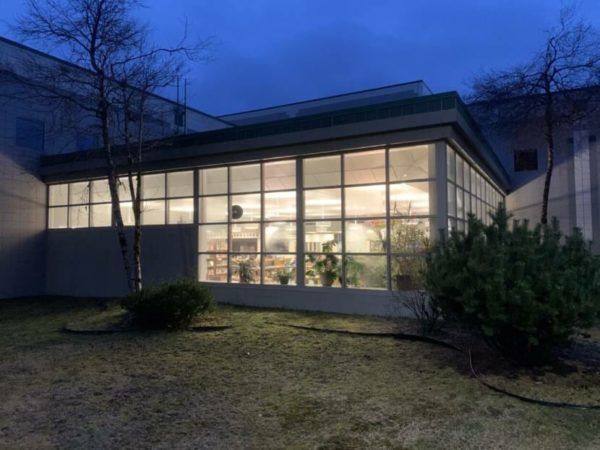
Ketchikan’s school board has completed its first regular evaluation of the school district’s chief administrator, who is facing accusations of racism from Ketchikan’s tribal leaders and some parents.
But the school board won’t reveal the outcome of their review of Superintendent Beth Lougee’s performance as the top education official. And that’s left some wondering whether their concerns have been addressed.
Ketchikan’s federally recognized tribe is publicly pushing to oust the head of the local school district. Late last year, Ketchikan Indian Community’s Tribal Council issued a letter saying it had “no confidence” in her ability to lead the school district. Flash forward to Tuesday evening, and Tribal Council President Gloria Burns said their position remains unchanged.
“I am here as the president of Ketchikan Indian Community,” Burns said. “We have sent a letter that we hope will be addressed.”
Lougee has faced accusations that she hasn’t supported Alaska Native faculty or cultural education. Some point to a staff member tasked with improving cultural awareness who was forced to sit on the floor after she was provided with an unfurnished office without a desk or chair.
Burns extended sympathy to Lougee — the superintendent recently returned from a leave of absence following the death of her husband and a battle with complications of COVID-19 — but she said the tribal council wants Lougee out.
“We look forward to a really strong relationship with the school district that allows for our young people to flourish. And it is the position of the tribe that that relationship will not become strong and will not flourish under the leadership of Superintendent Lougee,” Burns said.
After meeting behind closed doors for about three hours, members of the school board emerged to announce that they had completed Lougee’s evaluation.
But whether it was a glowing endorsement, abject condemnation, or something in between remains unclear. School board President Kim Hodne said later their findings won’t be made public.
“They’re a personnel matter and no, personnel matters won’t be — the specifics of the evaluation, of course, would not be made public. Just kind of the law. It’s the way it is,” Hodne said.
He said he and fellow board member Jordan Tabb will follow up with Lougee about her performance.
It’s not clear if personnel reviews of public officials are exempt from disclosure, though. A 1990 Alaska Supreme Court decision found performance reviews for officials with decision-making authority are public record.
“Performance evaluations of government employees who exercise discretion in their duties are subject to release as a matter of law,” Justice Jay Rabinowitz wrote in a 1990 opinion.
KRBD filed a records request on Wednesday to unseal relevant documents. It’s pending with the school district
The board’s perceived secrecy has left tribal members unsatisfied.
“I feel unresolved. I am not sure what to think,” Tribal Council President Burns said in a phone interview Wednesday.
She said she understands policies and laws may limit what the board can say in public.
“But to say nothing, really is very difficult for me to comprehend, especially with so many people watching and looking and just needing to feel a sense of some kind of confidence,” Burns said.
Asked to respond to the accusations of racism from Burns and other tribal members after the meeting, Lougee offered her first public comments on the matter since the evaluation process began in December.
“I guess I can say that that comment hurt, in many, many ways. And I guess I’ll leave it at that,” Lougee said.
Once the board delivers a written evaluation to Lougee, she’ll have 10 days to respond. Her contract stipulates the board must meet with Lougee no more than 30 days after delivering the written review and recommendations for improvement.




